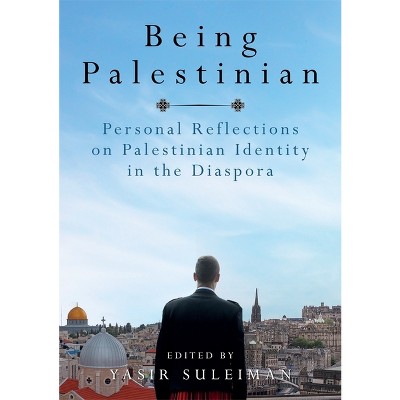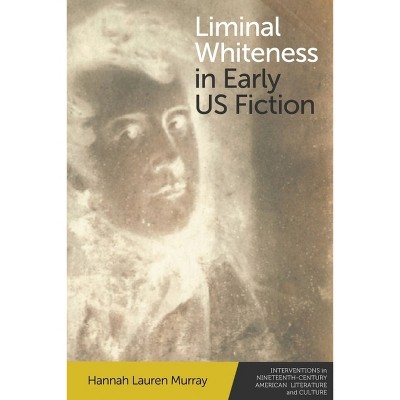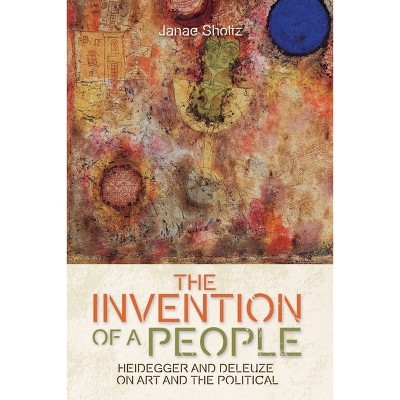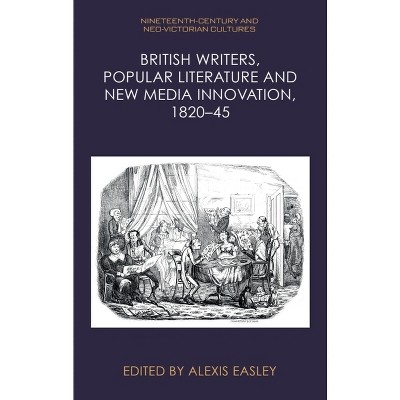The Invention of Palestinian Citizenship, 1918-1947 - by Lauren Banko (Paperback)

About this item
Highlights
- In the two decades after the First World War, nationality and citizenship in Palestine became less like abstract concepts for the Arab population and more like meaningful statuses integrated into political, social and civil life and as markers of civic identity in a changing society.
- About the Author: Lauren Banko is a Research Associate in the Department of Middle Eastern Studies at the University of Manchester.
- 288 Pages
- History, Modern
Description
About the Book
This book situates the evolution of citizenship at the centre of state formation under the quasi-colonial mandate administration in Palestine.
Book Synopsis
In the two decades after the First World War, nationality and citizenship in Palestine became less like abstract concepts for the Arab population and more like meaningful statuses integrated into political, social and civil life and as markers of civic identity in a changing society. This book situates the evolution of citizenship at the centre of state formation under the quasi-colonial mandate administration in Palestine. It emphasises the ways in which British officials crafted citizenship to be separate from nationality based on prior colonial legislation elsewhere, a view of the territory as divided communally, and the need to offer Jewish immigrants the easiest path to acquisition of Palestinian citizenship in order to uphold the mandate's policy. In parallel, the book examines the reactions of the Arab population to their new status. It argues that the Arabs relied heavily on their pre-war experience as nationals of the Ottoman Empire to negotiate the definitions and meanings of mandate citizenship.
From the Back Cover
'A fascinating account of the origins of citizenship in Palestine against a tumultuous background of a declining empire (Ottoman), a transforming empire (British) and an incipient state (Israel). It makes an original and major contribution to our understanding of post-imperial and post-colonial citizenship and sheds a significant light on periods of political and legal transition.' Engin Isin, Professor of Citizenship, Politics and International Studies (POLIS), The Open University Explores the colonial, social and political history of the creation of citizenship in mandate Palestine In the two decades after the First World War, nationality and citizenship in Palestine became less like abstract concepts for the Arab population and more like meaningful statuses integrated into political, social and civil life and as markers of civic identity in a changing society. This book situates the evolution of citizenship at the centre of state formation under the quasi-colonial mandate administration in Palestine. It emphasises the ways in which British officials crafted citizenship to be separate from nationality based on prior colonial legislation elsewhere, a view of the territory as divided communally, and the need to offer Jewish immigrants the easiest path to acquisition of Palestinian citizenship in order to uphold the mandate's policy. In parallel, the book examines the reactions of the Arab population to their new status. It argues that the Arabs relied heavily on their pre-war experience as nationals of the Ottoman Empire to negotiate the definitions and meanings of mandate citizenship. Lauren Banko is a Research Associate in the Department of Middle Eastern Studies at the University of Manchester. Cover image: Palestine Arabs at Abou Ghosh taking the oath of allegiance to the Arab cause, 1936 (c) Library of Congress. Cover design: [EUP logo] edinburghuniversitypress.com [please note new web address] ISBN 978-1-4744-1550-7 BarcodeReview Quotes
'A fascinating account of the origins of citizenship in Palestine against a tumultuous background of a declining empire (Ottoman), a transforming empire (British) and an incipient state (Israel). It makes an original and major contribution to our understanding of post-imperial and post-colonial citizenship and sheds a significant light on periods of political and legal transition.'--Engin Isin, Politics and International Studies (POLIS), The Open University
A valuable and descriptively illuminating historical study. It advances our understanding of the legal and political construction of citizenship in the British Mandate.--Nimer Sultany, SOAS "Journal of Palestine Studies"
About the Author
Lauren Banko is a Research Associate in the Department of Middle Eastern Studies at the University of Manchester.Shipping details
Return details
Trending Non-Fiction











